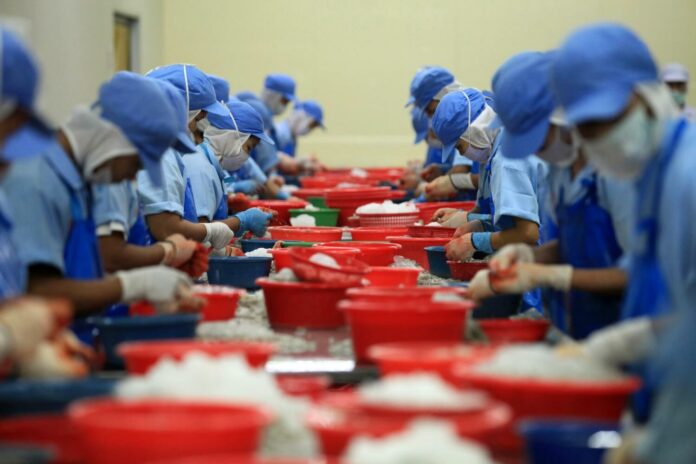Business confidence in Thailand took a hit as the Thai Industries Sentiment Index (TISI) dropped in April, reflecting entrepreneurs’ concerns over a slew of economic pressures, including a proposed daily minimum wage increase. The TISI, a measure of the mood in the industrial sector, registered at 90.3 points, a decrease from the 92.4 points recorded in March, as reported by the Federation of Thai Industries (FTI).
Entrepreneurs are facing a multitude of challenges, from anticipated lower sales and production to the financial implications of the government’s various policy changes. The looming wage hike, higher domestic diesel prices, and the cost of raw materials are all contributing factors to the dampened sentiment.
Kriengkrai Thiennukul, at the helm of the FTI, voiced concerns over the proposed uniform daily minimum wage increase to 400 baht (US$ 11). “It will impact all businesses,” he stated, emphasising the additional burden rising diesel prices will place on operating and logistics costs.
The retail diesel price saw a bump from 30 baht (US$ 0.8) per litre to 33 baht (US$ 0.9) per litre from April 20 to July 31, after the diesel excise tax cut expired yesterday. Furthermore, on May 14, the government acknowledged a proposal from the Labour Ministry to push the daily minimum wage to 400 baht across the country, with a target implementation window of September or October. However, this increase is still up in the air, pending a definitive agreement from the tripartite wage committee.
At the start of the year, the daily minimum wage saw an increment, with the new rates across provinces ranging from 330 to 370 baht (US$ 9 to 10), marking increases from 2 to 16 baht (US$ 0.05 to 0.4), averaging at 2.37%. The tripartite wage committee, consisting of government, employer, and employee representatives, later sanctioned a rise to 400 baht for certain businesses in the tourism sector and larger hotels in 10 provinces, effective as of April 13.
The FTI reported that the current wage rates, together with surging energy and material costs, are already straining businesses. Labour-intensive factories have seen their operating costs climb by as much as 20%, while those with smaller workforces have experienced increases between 5 and 7%. Heavy industries such as cement, steel, iron, and glass have been particularly hard hit, with costs soaring by 30 to 40% following the wage adjustments.
Wage increase
With these developments, Kriengkrai has urged the government to align its wage policy with the recommendations of the tripartite wage committee, advocating for a more nuanced approach that ties pay to skills rather than implementing a blanket increase across all provinces, reported Bangkok Post.
The April TISI findings were drawn from a survey involving 1,268 entrepreneurs from 46 industries within the FTI’s purview. The survey highlighted the global economy as the primary concern for 79.4% of respondents, followed by oil prices (56.6%), the domestic economy (56.4%), and domestic politics (40.2%).
Business News



